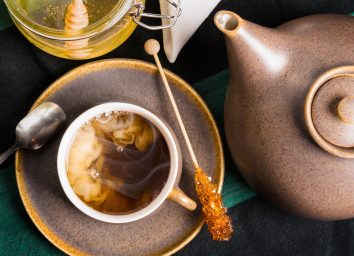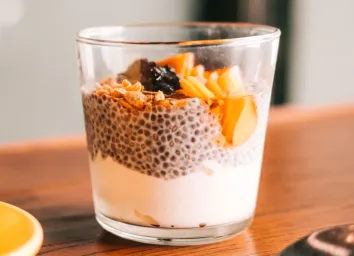The Surprising Foods That Tom Brady Never Eats, According to His Personal Chef
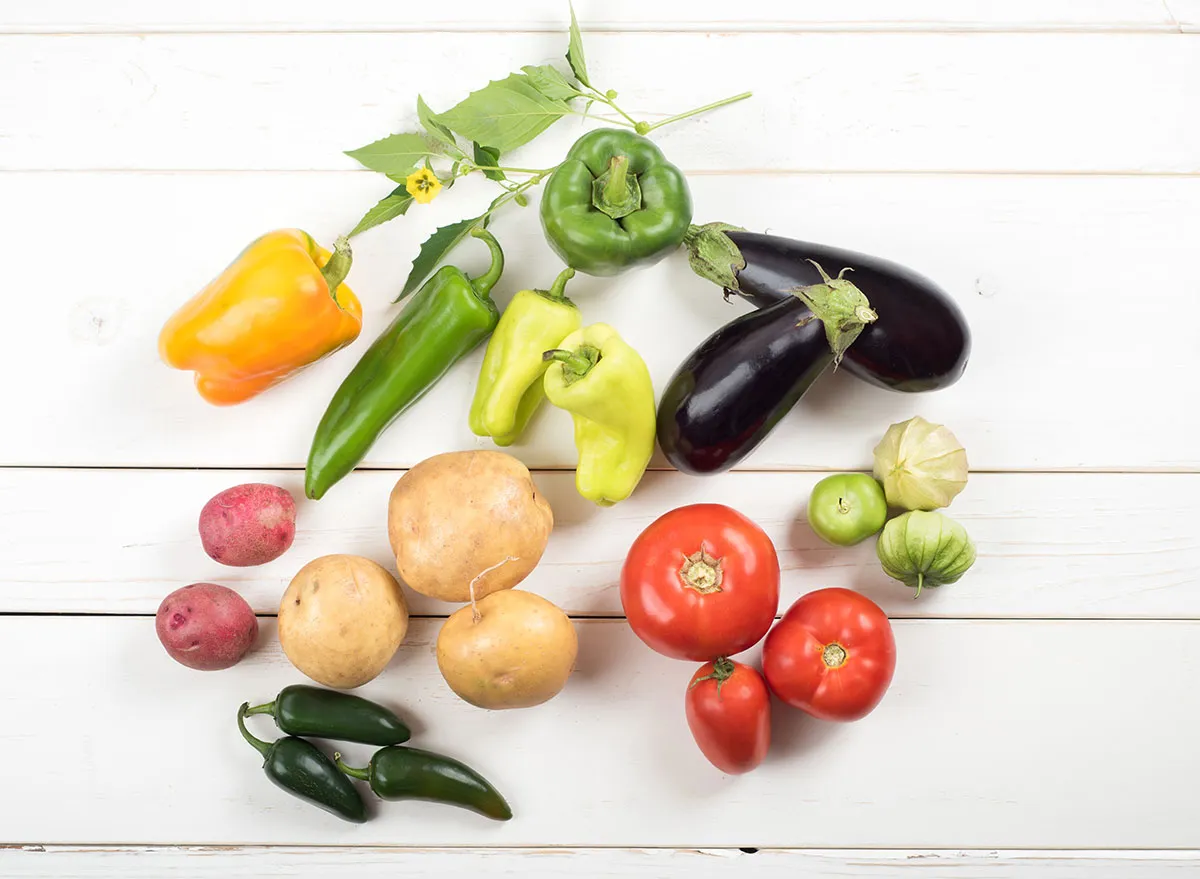
On Sunday, Tom Brady made history. At 43 years old, the Tampa Bay Buccaneers quarterback is the oldest player to ever play in a Super Bowl. He also has had more appearances in the big game than any other player in NFL history at 10—7 of which he and his team took the championship title. While it's a given that Brady's hard work and training play a big role in his success over the years, there are some other lifestyle changes he's made that have helped the quarterback stay fit and agile in his later years.
Thanks to Alex Guerrero, Brady's personal trainer and body coach, the quarterback reportedly goes to sleep at 9 p.m. and focuses a lot on his flexibility. But perhaps the most important (and unconventional) change is adhering to an anti-inflammatory diet.
With the help of Brady's (former) personal chef, Allen Campbell, the quarterback developed and follows a fairly strict, plant-based diet that leaves out many popular foods.
"My philosophy is that a plant-based diet has the power to reverse and prevent disease," Campbell said in an interview with the Boston Globe in 2016. (After the interview came out and after helping Brady write his TB12 Nutrition Manual, Campbell parted ways with the quarterback.)
Brady's meals consist of roughly 80 percent plant-based foods and 20 percent animal-based foods, according to a TB12 blog post. But there are many foods—both plant and animal-based—that Brady avoids, and he's attributed this avoidance to a lot of his athletic performance.
We reviewed interviews with Brady's personal chef alongside blog posts on his personal website, TB12, to find the 18 foods Brady never eats. Read on, and for more on healthy eating, don't miss 7 Healthiest Foods to Eat Right Now.
GMOs
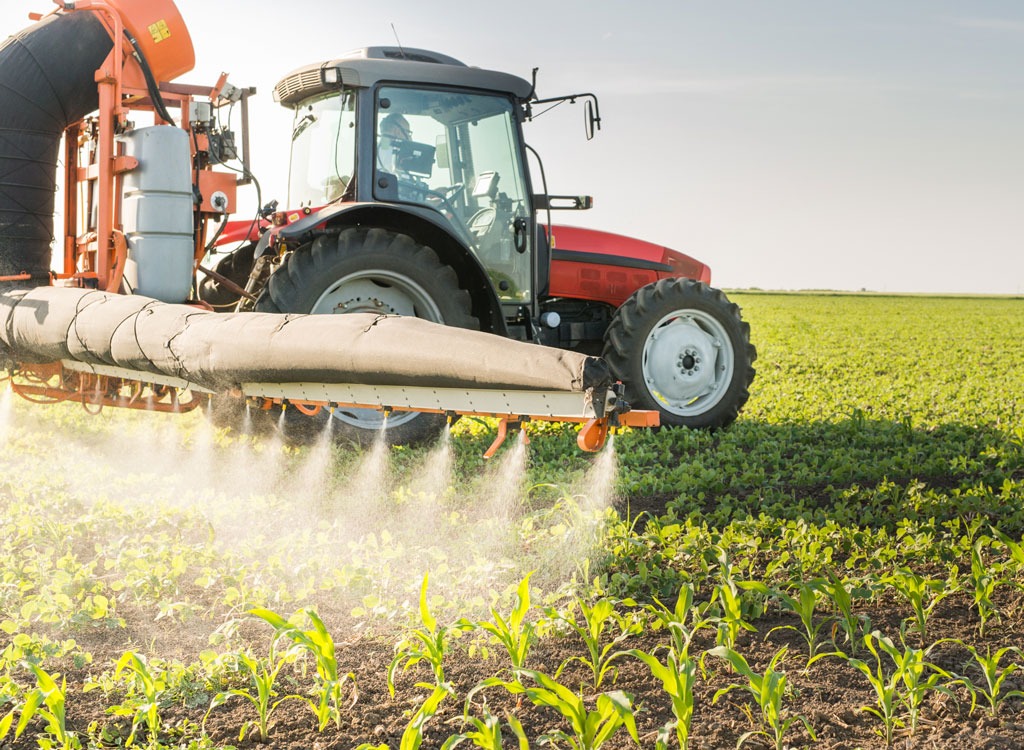
"I make conscious decisions to buy local and organic, and to stay away from GMOs, and to think about the future of the planet and the future of humans," said Campbell.
Strawberries
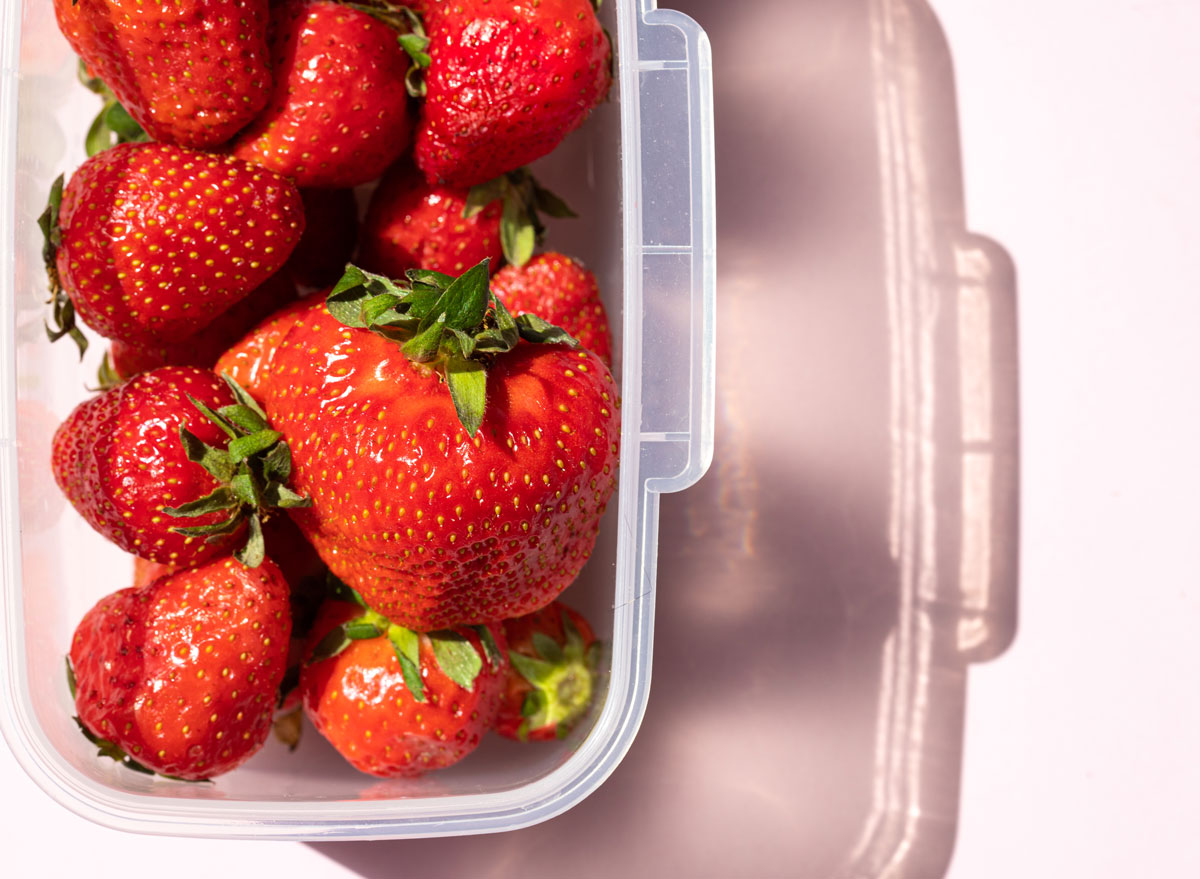
Brady doesn't eat strawberries for any nutritional reason—he simply doesn't like the smell, according to the TB12 blog post.
White sugar

"I try to avoid eating anything that comes in a box or a bag, as well as foods containing white flour or added sugars," Brady says in a TB12 blog post.
Refined carbs
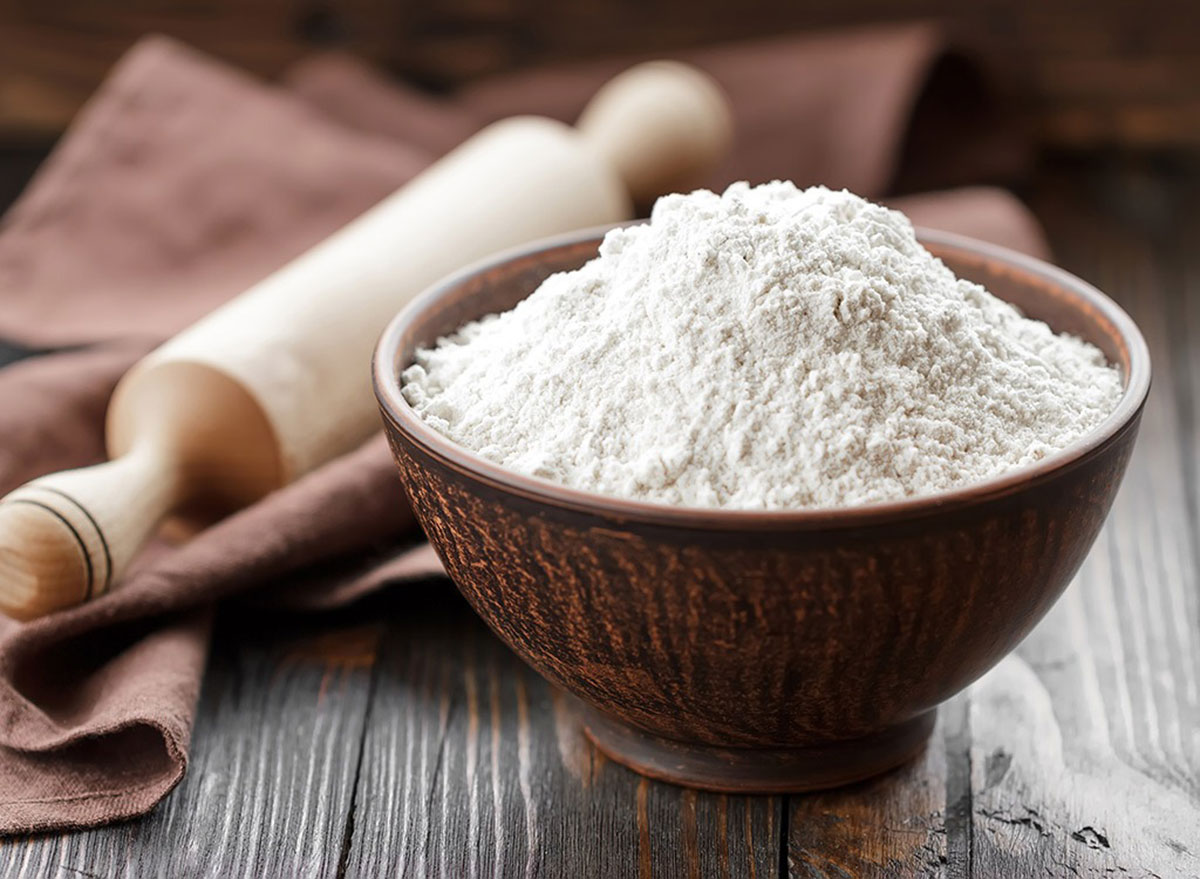
"I try to limit cereal, white bread, white rice, pasta, cakes, and cookies. Less inflammation is the key for me," Brady says in a blog post.
MSG
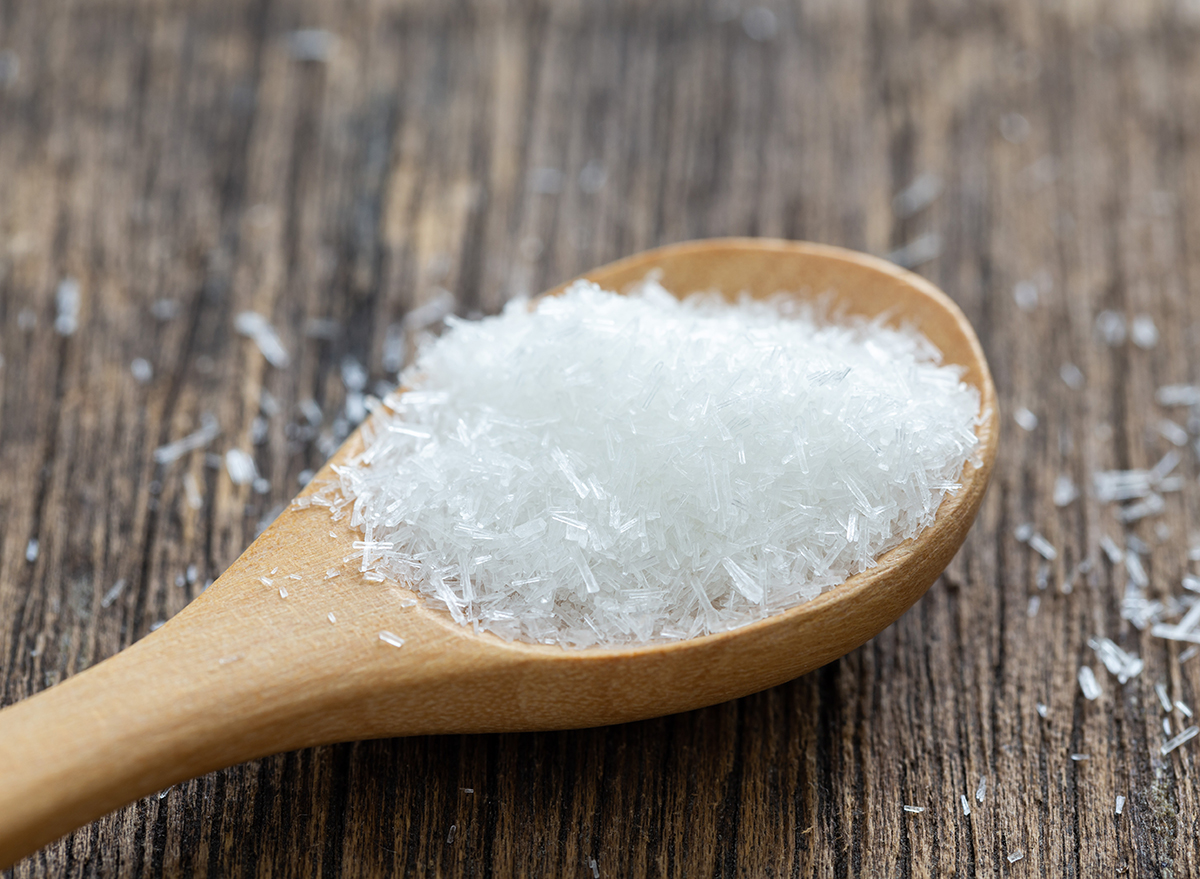
In his 2016 interview with the Boston Globe, Campbell said that Brady won't eat this highly-processed additive.
Non-organic food
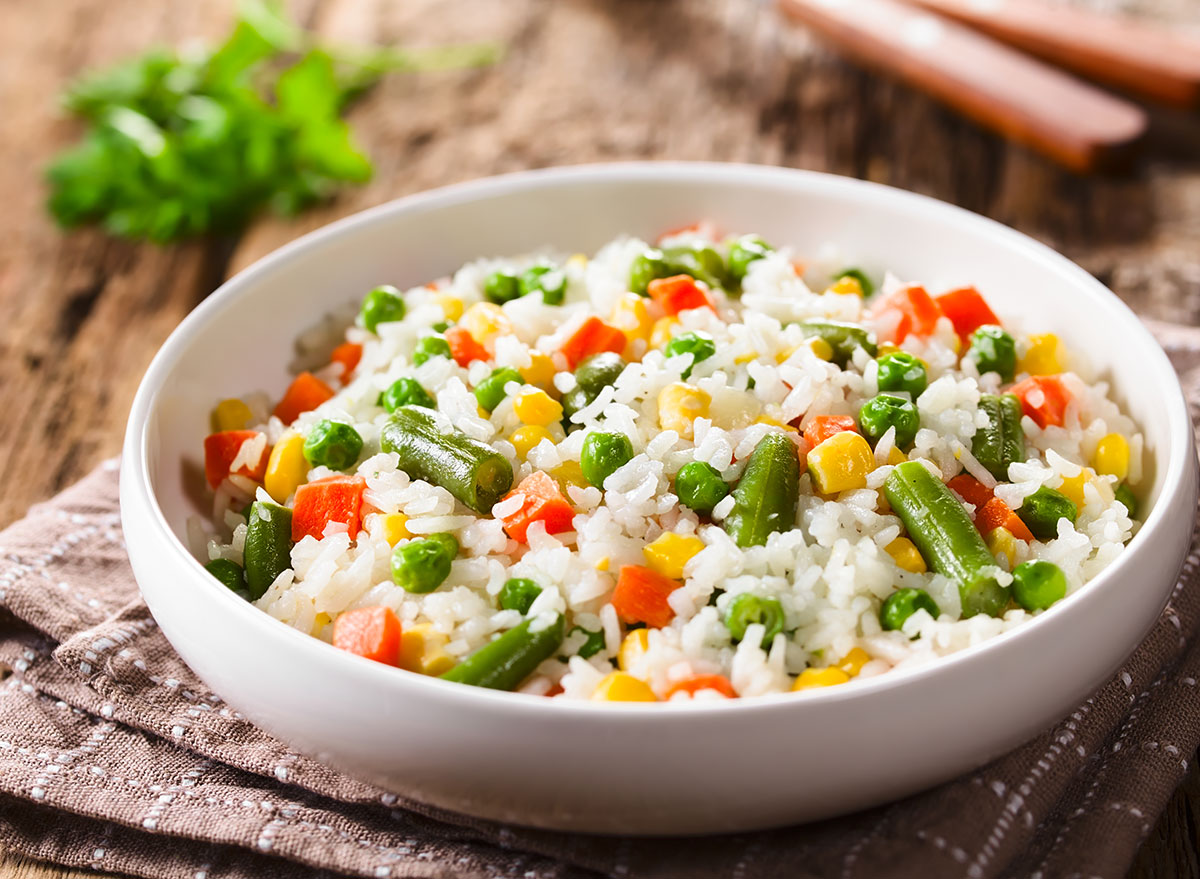
Campbell said that he only cooks with organic foods, and often shops at farmer's markets or at Whole Foods. So that means that any conventional produce or meats are off the table.
Iodized salt

"I use Himalayan pink salt as the sodium. I never use iodized salt," said Campbell. Although Brady doesn't eat iodized salt, nutrition experts recommend making iodized salt a staple in a healthy diet, as many people don't consume enough of the nutrient, which is essential to a healthy thyroid.
Canola oil
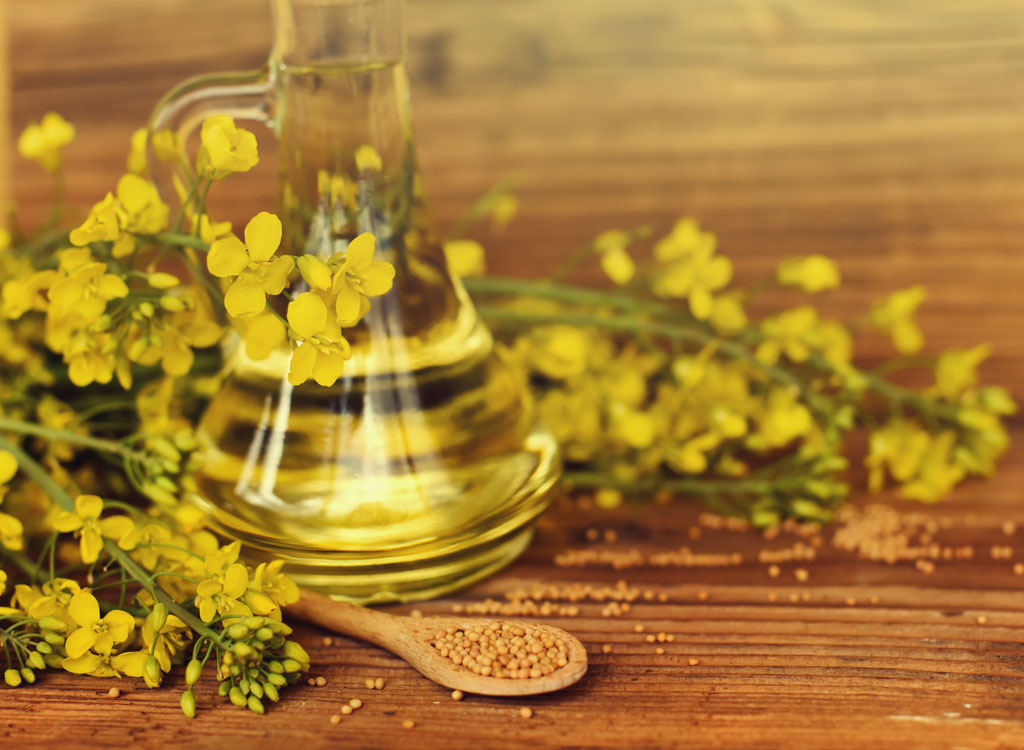
"Fats like canola oil turn into trans fats," says Campbell. Instead of vegetable oil, Cambell uses olive oil and coconut oil. (Related: What Happens To Your Body When You Eat Olive Oil)
Tomatoes
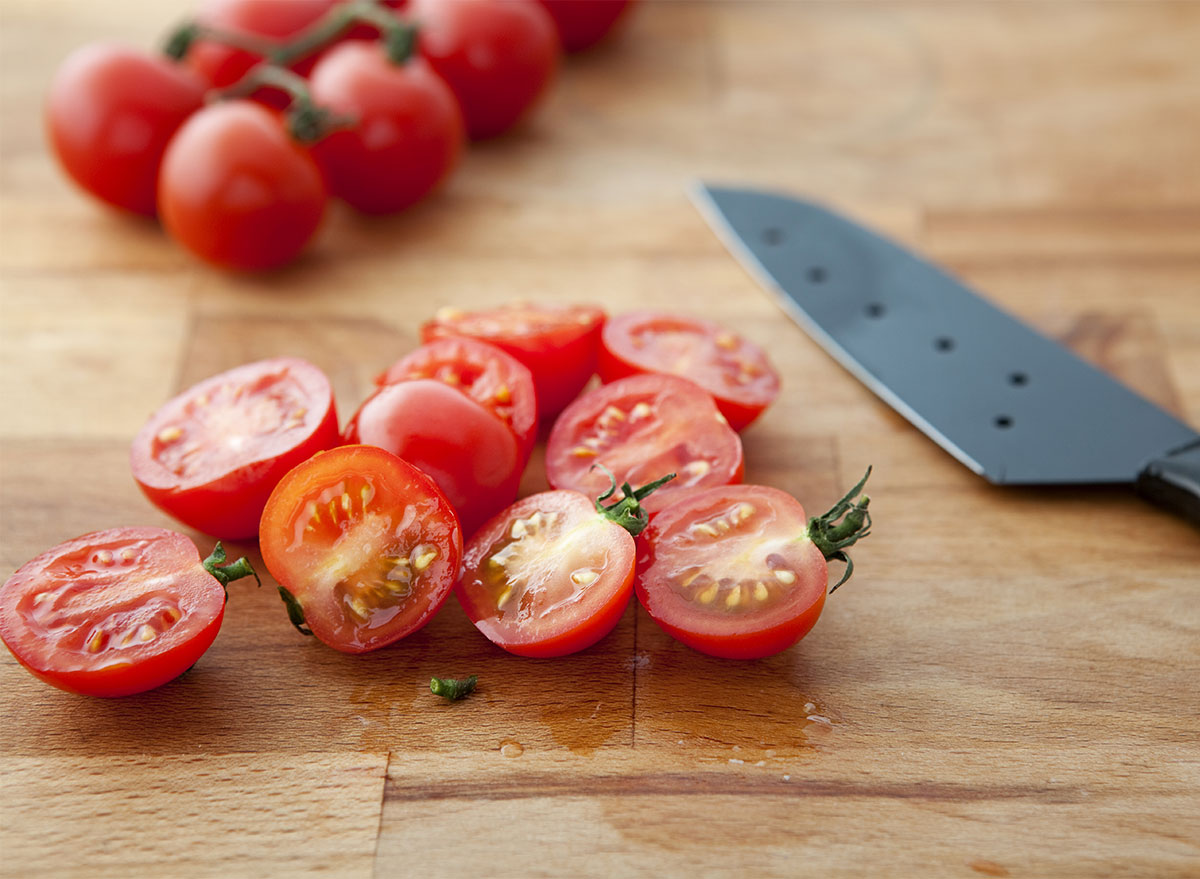
One of the most famous parts of the quarterback's diet is his avoidance of tomatoes and nightshades. "[Tom] doesn't eat nightshades, because they're not anti-inflammatory," says Campbell. "So no tomatoes, peppers, mushrooms, or eggplants. Tomatoes trickle in every now and then, but just maybe once a month. I'm very cautious about tomatoes. They cause inflammation."
Nightshades are a botanical family of plants, called Solanaceae, explains UC Davis Integrative Medicine. The term "nightshade" was coined since many of these plants prefer to grow in shady areas or often flower at night. These foods contain chemical compounds called alkaloids, which some say cause inflammation, but that haven't been scientifically proven to do so.
So that means no pasta sauce, no pizza, no salsa!
Peppers
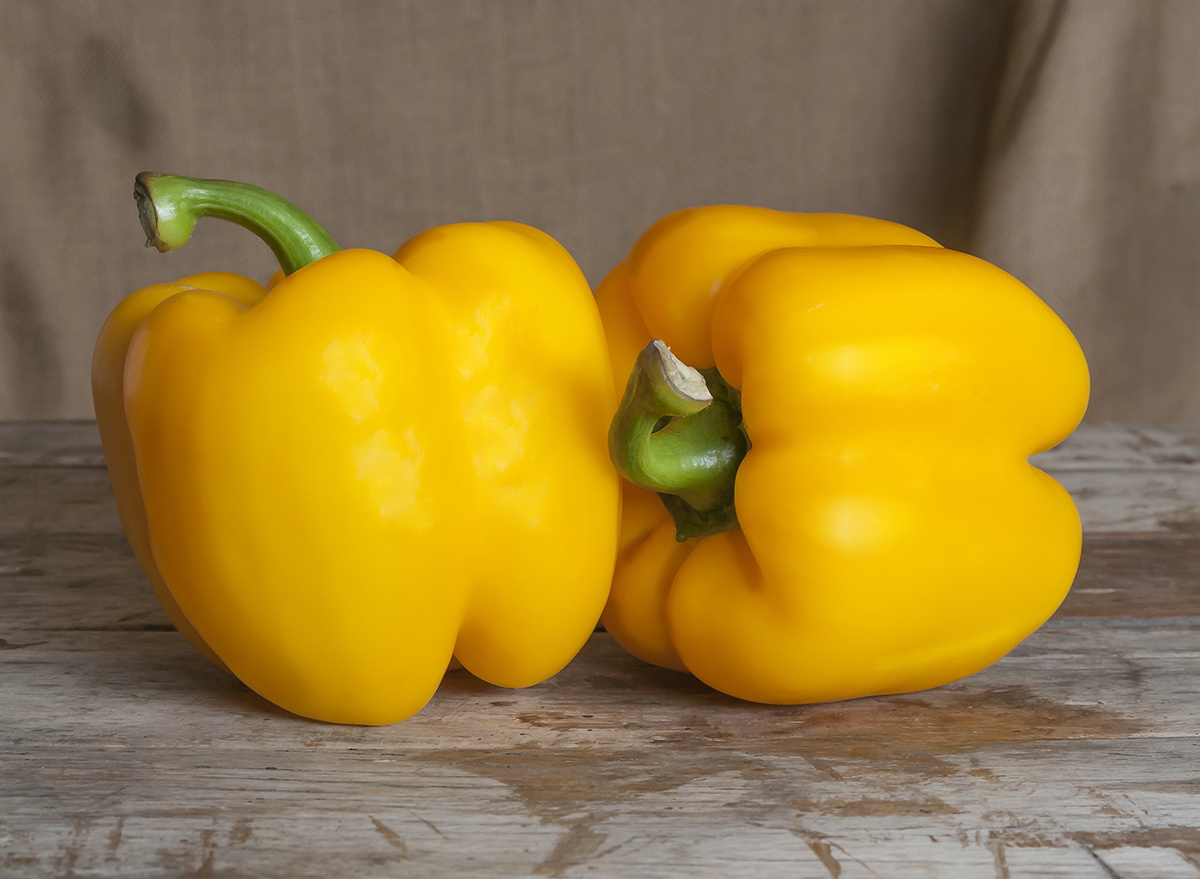
Sweet peppers are another nightshade that Brady doesn't eat. This also includes chili peppers, so presumably, Brady avoids hot sauce. Many experts criticize leaving out this vegetable, as it's incredibly high in vitamin C. However, there are other foods high in vitamin C, and a blog post on TB12 recommends consuming such foods. "Consider supplementing with 600 mg of vitamin C per day if you're not able to regularly consume those nutrient-rich foods," the blog notes.
Eggplant
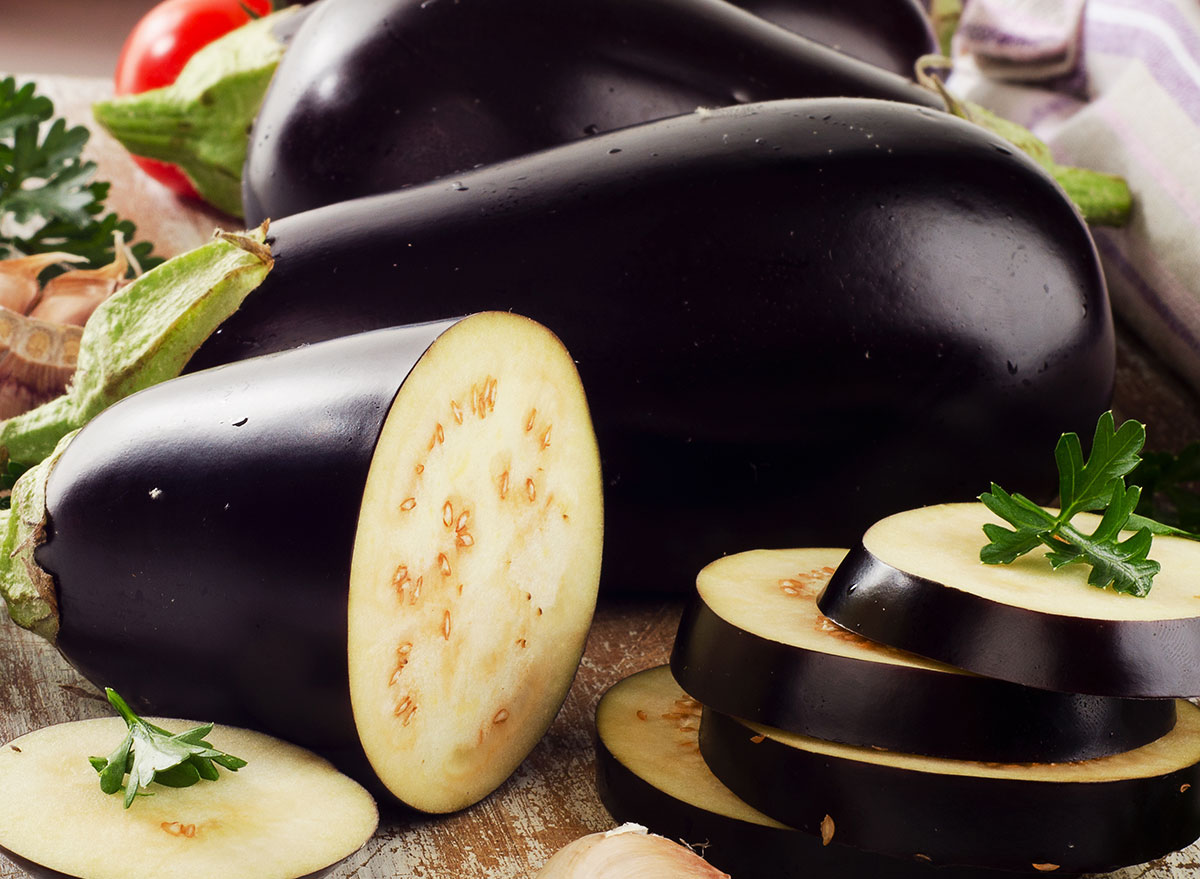
Campbell called out eggplant as another nightshade that Brady avoids. Another nightshade Campbell didn't list is white potatoes; however, it's likely that Brady still consumes sweet potatoes, according to a TB12 blog post.
Mushrooms & fungus
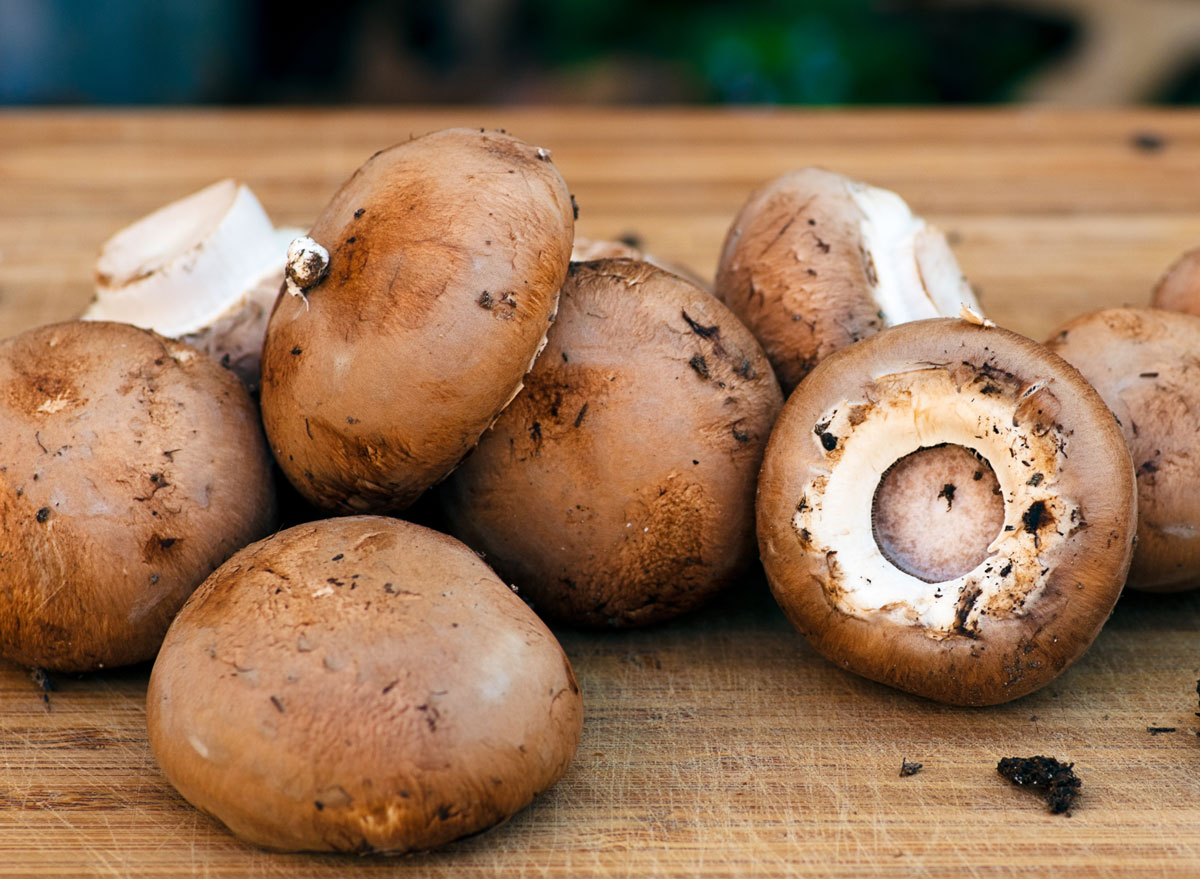
Campbell listed mushrooms as one of the nightshades that Brady doesn't eat, however, the fungus isn't technically a nightshade. Regardless of that fact, Brady doesn't eat them or any fungus.
Coffee & caffeine
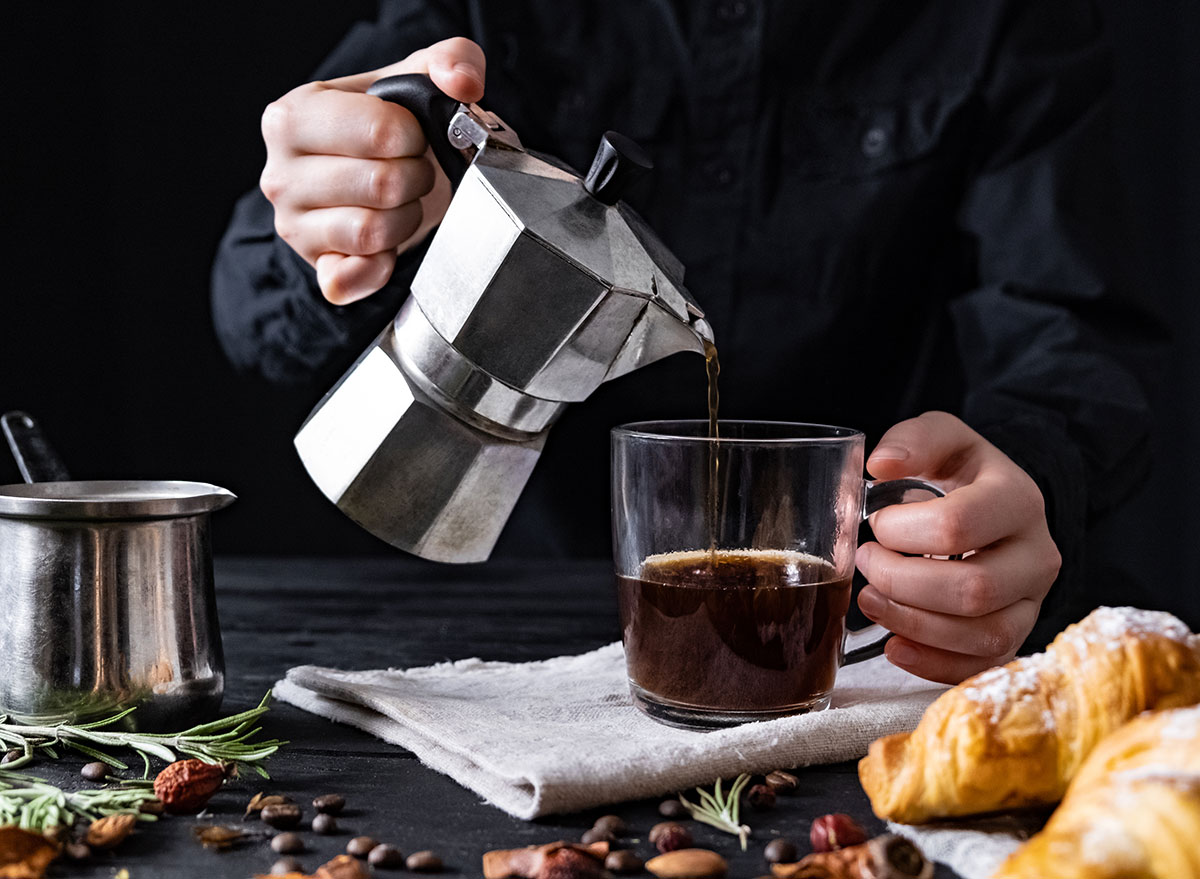
Campbell listed coffee or any caffeinated foods among those that Brady doesn't consume. That means he won't have to experience any of the Ugly Side Effects of Drinking Too Much Coffee, According to Science.
Dairy

As dairy can be inflammatory to a population with lactose intolerance or sensitivity, Campbell says it's not in Brady's diet.
Gluten

Gluten may also cause inflammation in those sensitive to the protein. For that reason, Campbell explains that Brady avoids any gluten-containing foods. "[I use] tamari because we stick to gluten-free for everything," he says. That means bread, anything with wheat, barley (so that means no beer), rye, crackers, bagels, flatbread, tortillas, cake, cookies, doughnuts, pretzels, pancakes, pasta, cereal, and some protein bars.
Alcohol

Besides avoiding beer due to its gluten content, Brady skips out on all alcohol. "Overdoing it can take a toll on your health, performance, and ability to recover," a TB12 blog post notes. "Alcohol is a double whammy: It can be both inflammatory and dehydrating."
Processed meats
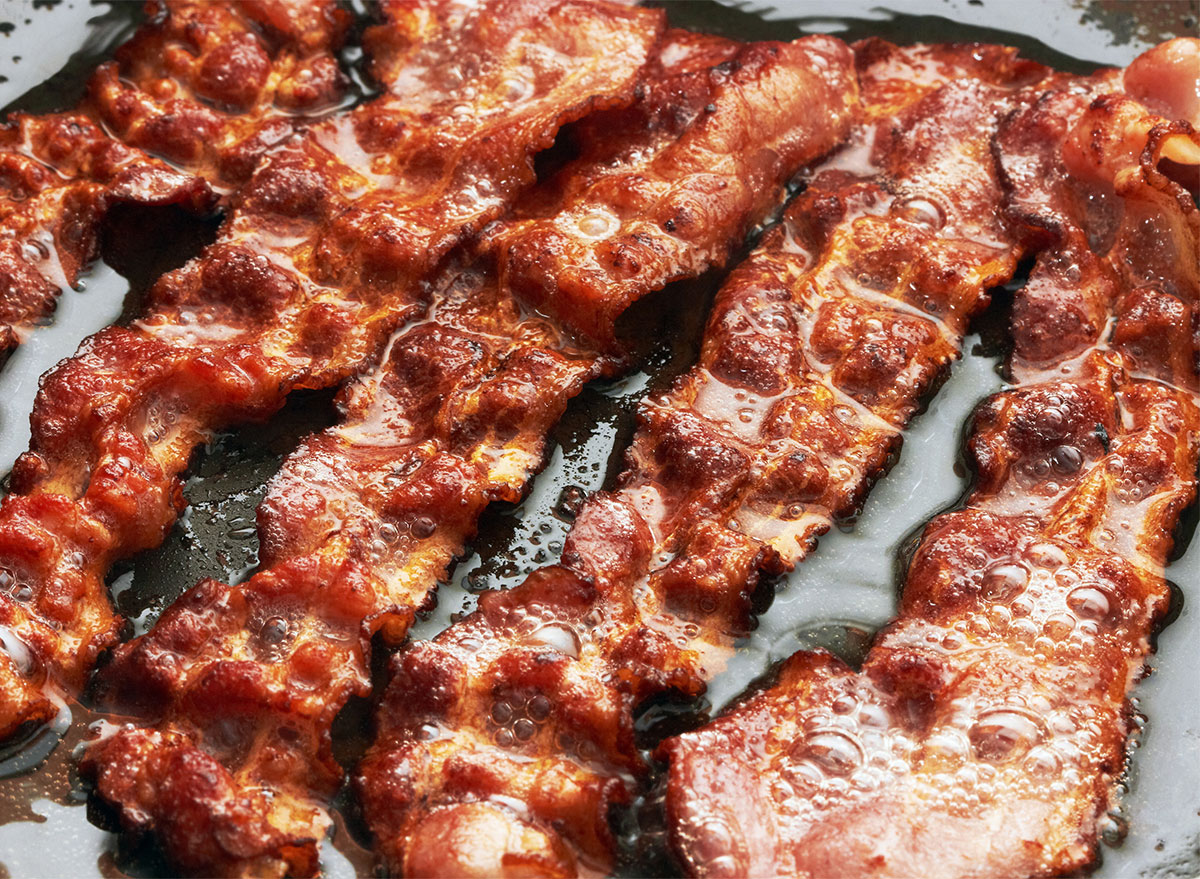
Most processed meats are cured with preservatives like nitrates and nitrites. These ingredients have been linked to cancer, and processed foods like hot dogs, lunchmeat, and bacon are associated with a myriad of health problems, says a TB12 blog. "It's best to avoid processed meats as much as possible."
However, Brady isn't extremely strict about this rule: "If I'm craving bacon, I have a piece. Same with pizza. You should never restrict what you really want. We're humans, here for one life," the quarterback told Men's Health.
Fried foods
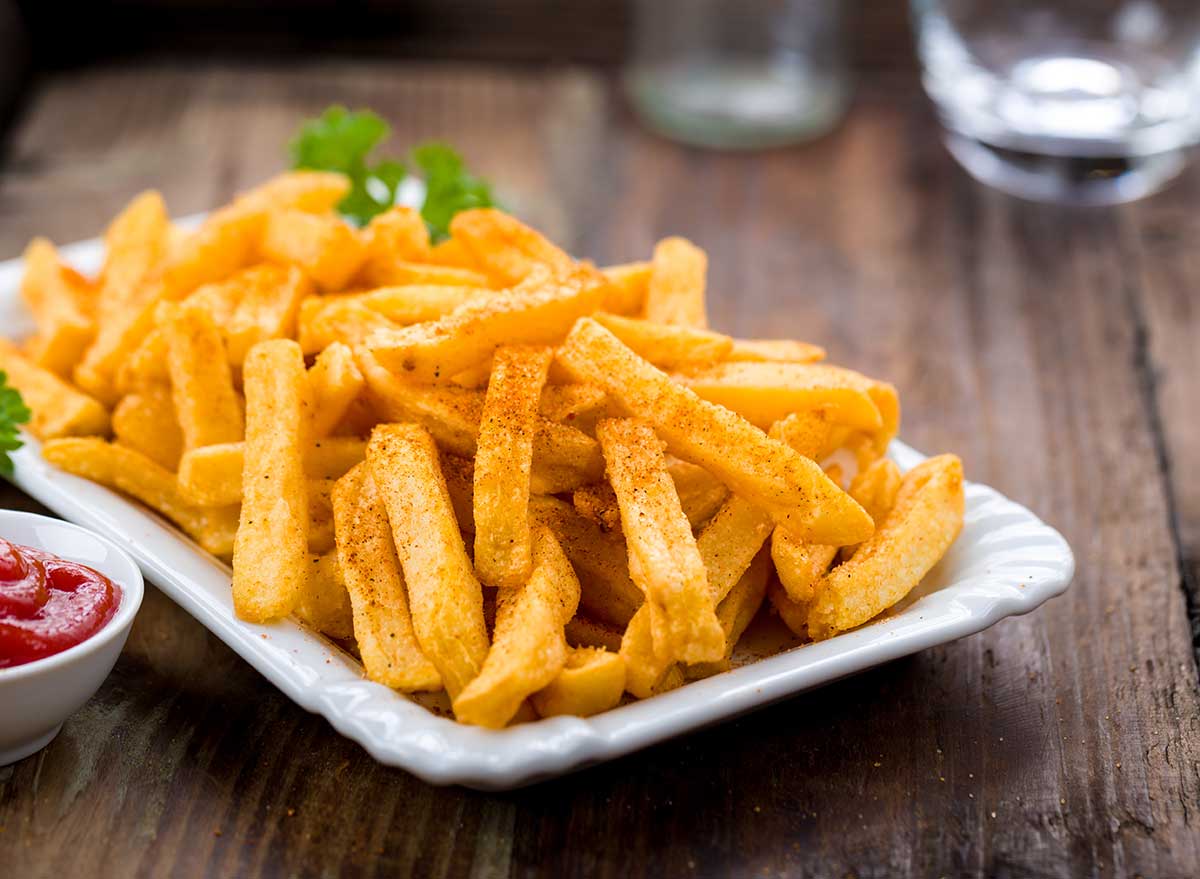
Forget french fries and potato chips. "Regardless of how much you love fried chicken, fried foods are an inflammation nightmare. Cooking food at the high temperatures required to fry them produce something called advanced glycation end products (AGEs), which have been shown to contribute to chronic inflammation," says a TB12 blog post. For more, see these Dangerous Side Effects of Eating Fried Foods, According to Science.
